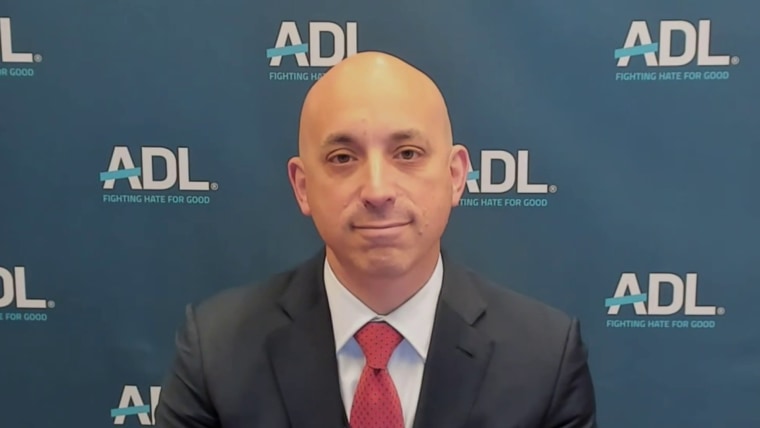The first time I saw the cover of Art Spiegelman’s “Maus,” I stopped cold. The drawing on its cover depicts two mice huddled under a large, menacing swastika and the face of a cat sporting the same narrow mustache as that of Adolf Hitler.
My own experience with “Maus” demonstrates its unique ability to teach students a difficult lesson at just the right stage of development.
I was 11 or 12 years old and already a voracious reader. But I had never seen a book like it anywhere, let alone in my public school library.
I recognized the swastika, and I knew the Nazis were the bad guys, thanks to “Indiana Jones” movies and “Captain America” comics. I had seen books about World War II before, but they were very different. There were clearly fanciful characters on the cover of this one, but they were not superheroes standing up to the evil villains. The ominous cover conveyed that a much more serious story was being told.
I was even more intrigued when I opened up “Maus” and discovered not just words, but also a story told in comic strip style. This wasn’t “The Amazing Spider-Man” or “Uncanny X-Men.” The story told in these comic panels was shocking, tragic — and deeply rooted in truth.
I immediately took the book to the checkout counter, then put it in my green backpack and counted the minutes until I could get home and read through its mysterious pages.
I found the book challenging. It depicts the brutality of the Holocaust in an exceedingly effective manner, with taut dialogue and stark artwork. Like George Orwell in “Animal Farm,” Spiegelman tells a brutal story with animals. In “Maus,” the author depicts the Nazis as cats and the Jews they slaughtered as mice. The story is conveyed in flashbacks as a father explains to his son how he survived the Holocaust, mirroring Spiegelman’s conversations with his own father. Spiegelman’s seminal work was so effective that “Maus” remains the only graphic novel to receive a Pulitzer Prize.
Alone in my room, this exceptional book and its blend of biography, art, history and fiction upended my naive understanding of the depths of human depravity and the heights of resilience. “Maus” taught me more than the history of the Holocaust. It expanded my understanding of how difficult stories can be told. Spiegelman shared a deeply personal story pulled from one of history’s darkest eras – a story about love and loss and tragedy and brutality and survival — and he used comic book drawings of animals to bring harsh truths to life in a way that words alone never could.
Reading “Maus” was formative for me. But decades later, other public school students in Tennessee will be denied that same experience. Despite it being part of a state-approved eighth grade curriculum, the members of the school board in McMinn County, outside of Chattanooga, banned “Maus” in a unanimous vote earlier this month.
The vote finally received media attention Wednesday, just hours before the start of Holocaust Remembrance Day.
Minutes of the Jan. 10 meeting available online reveal that the board members said they objected to the book’s use of profanity and an image of nudity depicting the dead body of author Spiegelman’s mother, who took her own life at age 56.
“If I had a child in the eighth grade, this ain’t happening,” McMinn school board member Tony Allman said in the meeting. “If I had to move him out and homeschool him or put him somewhere else, this is not happening.”
Allman also objected to Spiegelman’s past work with Playboy magazine and noted that this book “shows people hanging, it shows [Nazis] killing kids.” He then asks, “Why does the educational system promote this kind of stuff” — a genuine demonstration of his own ignorance of Spiegelman’s intent, which was to warn against the evils of the Holocaust by showing its horrific brutality.
Throughout the meeting, several members of the McMinn County Board of Education insisted they did not object to their students learning about the Holocaust — but they all still voted to ban “Maus,” which raises questions about how committed they are to ensuring their students learn the unsantized, unredacted truth. Others in the room would only support using a redacted version of the book, and one high school teacher in the district told the board members, “This is not a book I would teach my students.”
My own experience with “Maus” demonstrates its unique ability to teach students a difficult lesson at just the right stage of development using a medium they have likely encountered before.
When reached by CNBC on Wednesday, Spiegelman said he was “baffled” and called the ban “Orwellian.” He also said that he doubts the reasons McMinn County members gave for banning “Maus,” saying he believes it has more to do with the subject matter. “There’s something going on very, very haywire there.”
I cannot speak to the motives of the McMinn County school board, but something “very haywire” is indeed happening. In at least 10 states — from New York to Texas — lawmakers, school officials and parents have pushed to keep hundreds of books, including many depicting issues of race and queer sexuality, out of students’ hands.
The only thing McMinn County’s ban will do is rob its students of crucial lessons about the world around them from one of the most compelling and accessible works available to a young audience.
I was so moved by the story told in “Maus” that I eventually bought my own copy. It has traveled with me from place to place throughout the years. I have loaned it out and reread it several times. The story continues to resonate with me today and provide new relevance as society grapples with its lessons.
I am extremely disturbed and angry that in my home state, eighth grade students are being deprived of these same foundational lessons. This ban, coming so close to Holocaust Remembrance Day, only highlights the importance of teaching students the unvarnished horrors of Nazi Germany and the emotional complexities — feelings of guilt, shame and loss — that Holocaust survivors were forced to live with for the rest of their lives.
The students of McMinn County deserve an education that includes the difficult lessons this book can teach them. They also deserve educators who respect them enough to teach those difficult lessons.
Lamentably, they have neither.
Source: | This article originally belongs to Nbcnews.com











